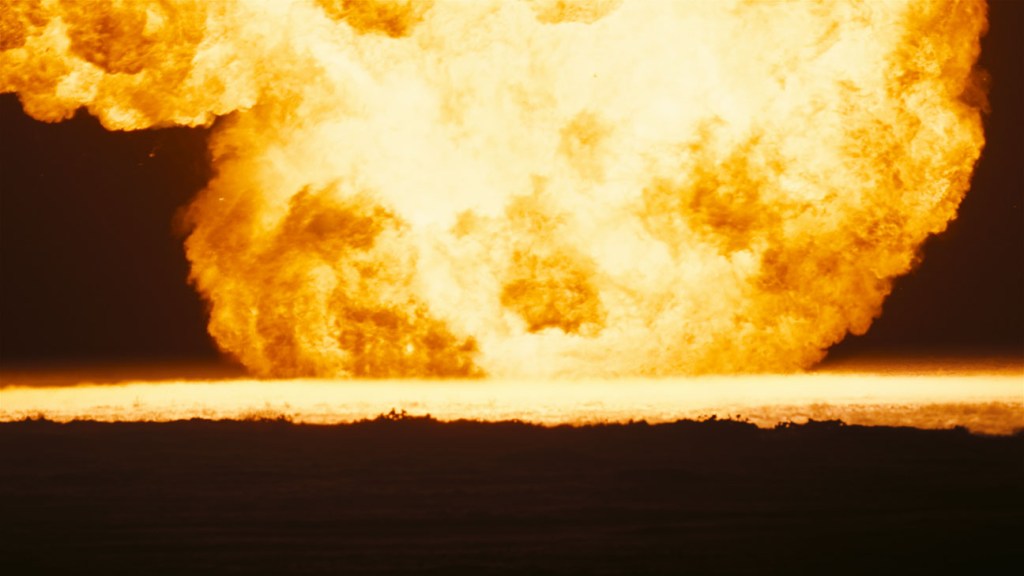Andrew Jackson reflects on creating the Manhattan Project’s Trinity Test, for which he says no CG was involved.
This is the best summary I could come up with:
There’s a sizable amount of largely “invisible” visual effects work in Christopher Nolan’s Oppenheimer, but more than a month after its release, that’s still not obvious to everyone.
“Some people have picked that up and taken it to mean that there’s no visual effects, which is clearly not true,” Oppenheimer‘s Oscar-winning VFX supervisor Andrew Jackson tells The Hollywood Reporter.
One VFX moment is the scene recreating the Trinity Test during in which scientists, led by J. Robert Oppenheimer (Cillian Murphy, detonated the first atomic bomb in New Mexico on July 16, 1945.
In other words, the team at Nolan’s go-to VFX company DNEG took filmed images — such as smoke and explosions — and used a computer program to layer them together to create the shots.
Of the visual approach to the movie, which was lensed in 65mm film with Imax cameras by cinematographer Hoyte van Hoytema, Jackson relates that they didn’t try to make an exact copy of what the explosion would have looked like, nor did they want something too stylized.
… Some of them had like a lighting effect on the actors for the flash as the explosion went off.” Underscoring Nolan’s love of working with film, Jackson reports that they used optical, not digital, color timing during postproduction.
The original article contains 593 words, the summary contains 206 words. Saved 65%. I’m a bot and I’m open source!
VFX and CGI are two different things though…
I don’t get why people fetishize practical effects and the absence of CGI. The issue is always when VFX is shoddy and obvious, but there are tons of invisible CGI in modern movies, and it’s often banal stuff like blood or cars in the background.
CGI is its own form of artistry and creating great CGI is absolutely a craft.
Because bad practical effects still tend to look better than bad CGI. At the very least, you can laugh at the funny costumes.
Practical effects age better. Compare The TRex in Jurassic Park vs any of the effects George Lucas added to Star Wars. Even with 5 more years of computer advancement the TRex looks great today and the special editions look like bantha dung.
The CGI that removed cars in the background will still have removed cars in the background and you wouldn’t have noticed.
That’s true. I was speaking more to additive CGI.
Removal is additive.
They have to add stuff to where the cars are. If they only removed the car there would be a blank spot where the car was.
You won’t believe how much is invisibly added digitally in seemingly simple movies these days.
Jurassic Park’s T-Rex also used CGI. This video explains a little. https://www.youtube.com/watch?v=l4UuQxjFpfU Good CGI is wonderful as are good practical effects. A great team working together from the start so results look believable is key. Bad CGI often comes from not preparing scenes ahead of time to include it.
Here is an alternative Piped link(s): https://piped.video/watch?v=l4UuQxjFpfU
Piped is a privacy-respecting open-source alternative frontend to YouTube.
I’m open-source, check me out at GitHub.
Indeed compare the original Star Wars 3 films compared to episodes 1, 2, 3.
The practical effects are much more seamless
I saw it recently on a true IMAX screen in Seattle and in some scenes Cillian looks very uncanny valley. No way they did that with just make up.











